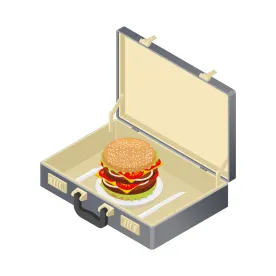In Brinker Rest. Corp. v. Superior Court (Cal. 2012) 273 P.3d 513, the California Supreme Court explained that an employer must relieve the employee of all duty for the designated meal period, but need not ensure that the employee does not work. In other words, no policing of meal breaks by the employer is required; and employees can break themselves. Now, the Ninth Circuit is asking the California Supreme Court if employers must go further in spelling out formal policies on meal and rest breaks to comply with California law.
In Cole v. CRST Van Expedited, Inc. fka CRST, Inc. (9th Cir. 2019) Case No. 0:17-cv-55606, a truck driver filed a putative class action lawsuit against his employer alleging drivers were not provided with requisite meal and rest breaks or compensation in lieu thereof. The employer presented testimony that the drivers were expected to run their own trips and take breaks when needed and that California meal and rest break policies were posted on bulletin boards at the employer’s terminal. Relying on Brinker, the court granted summary judgment in favor of the employer. The district court also granted the employer’s motion to decertify the meal and rest break classes. On appeal, the employee claimed the district court erred because California law requires that employers affirmatively provide breaks by adopting a policy authorizing them. The plaintiff’s employer had no policy, nor did it record meal breaks on its payroll statements or pay for rest breaks.
By order filed August 1, 2019, the Ninth Circuit requested that the California Supreme Court resolve two certified questions: (1) Does the absence of a formal policy regarding meal and rest breaks violate California law? and (2) Does an employer’s failure to keep records of meal and rest breaks taken by its employees create a rebuttable presumption that the meal and rest breaks were not provided? The Ninth Circuit observed that the answers to these questions are dispositive of this case, and are not answered by clear California precedent.
Whether and how the California Supreme Court answers these questions likely will impact an employer’s willingness to formally codify meal and rest breaks into their own written policies, may cause employers to exert more control over employees’ meal and rest breaks, and may even begin eating away at the Brinker decision.




 />i
/>i

